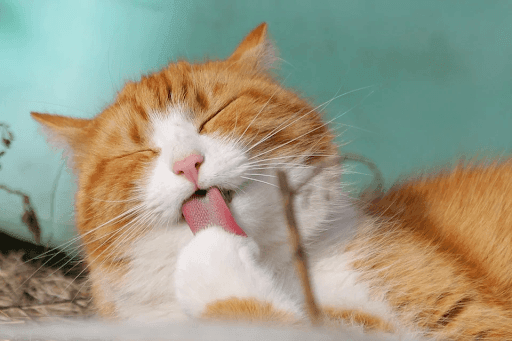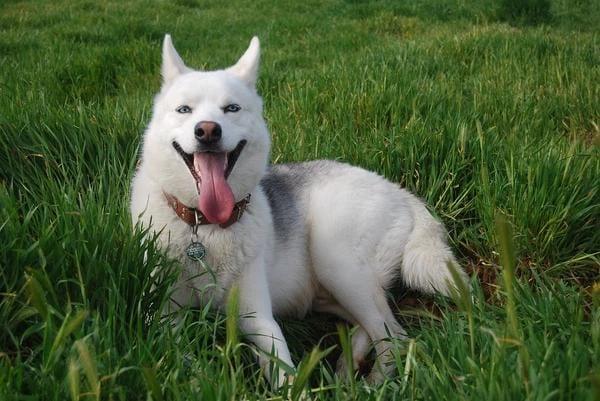In the ancient world, cats were once worshiped as gods. And as evidenced by the stereotypical stubbornness and independence of most cats to be treated as companions or equals, but not pets, it seems they have not forgotten it.
Still, Americans love their cats.
According to recent studies by the American Veterinary Medical Association, over 25.4% of American households own at least one cat. For context, 38.4% of American households contain at least one dog.
By the AVMA’s estimates, that means that there are over 58.3 million domesticated cats and over 76.8 million domesticated dogs in the United States.
That is a staggering statistic – over 58 million domesticated cats reside in the United States, a country infamous for its love of dogs!
And when you love something, you always want to take care of it.
And the best way to love your pet is to understand its habits and pay attention to its health.
For example, do you know the regular breathing rhythm and pattern of your cat? Would you know if something was amiss if you heard your cat breathing in an unfamiliar manner?
Most cats breathe in a rhythmic, smooth, and unlabored manner.
Barring excessive weight problems, if your cat begins panting constantly, it can be a sign of distress or even some serious health problems.
After all, when was the last time that you saw a cat walking around, breathing laboriously, and panting loudly like a dog?
The average house cat can live for 15 years. And while the average veterinarian bill for a cat can be as much as $400, the lifetime cost of pet medications for chronic illnesses can be as high as $7,500.
So, while cat panting may not seem serious, it could be a symptom of an unseen problem. Get your cat checked out by a veterinarian if cat panting is an issue.
First, let’s talk about why cat panting occurs and symptoms to watch for when it could be deadly.
And then, we will list some cat-related health problems that could cause labored and unceasing cat panting.
Check out Dope Dog today to get the latest dog care tips and advice from pet experts. And check out our online store to buy the best CBD oil, grooming, and treats for your pet.
Related: CBD For Dogs With Arthritis
When is Cat Panting Ever Normal?
There are a few reasons why audible cat panting may be normal and unrelated to any underlying health issues.
Here are a few typical reasons for cat panting.
Excess Heat Storage

Cats and dogs can’t release or regulate the heat in their bodies like human beings. Human beings remove excess from their bodies by sweating through their pores.
Cats and dogs don’t have pores in their skin and can’t sweat. Both cats and dogs are capable of mildly sweating through the pads on their paws.
But they can’t sweat enough through their paws to appreciably release any excess heat stored in their bodies.
Stress
Cat panting may be caused by your cat dealing with stressful situations.
Many cats hate being enclosed in cars or carrier pens for travel. Cats are territorial and may pant due to the stress of dealing with other pets in the house or neighborhood.
Overexertion
If your cat is energetic, athletic, and likes to run around, jump, or climb, then cat panting may be a sign that it overexerted itself. Try to watch its activities to connect an activity as the cause of cat panting.
Weight
If your cat is morbidly obese, then have it check out by the veterinarian. And talk to the veterinarian on strategies to help it lose weight.
Up to 35% of cats are morbidly obese. And feline obesity can cut a cat’s natural lifespan by up to four years or more.
Now that we have that out of the way, here are some symptoms that show that cat panting could be a medical emergency.
Cat Panting Symptoms That Could be a Medical Emergency
Severe and labored cat panting is a medical condition known as dyspnea. Dyspnea is just a medical term meaning that a cat is experiencing severe respiratory distress.
If your cat is panting loudly like a dog with its head and neck stretched out, elbows stretched away from its body, and struggling to breathe, then it is experiencing dyspnea.
If your cat is panting like that and exhibiting any of the following symptoms, get it to a veterinarian immediately:
- Consistently shallow or rapid-fire breathing
- Purplish or bluish tongue or gums
- Extremely loud, wheezing, and raspy cat panting
- Lethargy
- Loss of Appetite
- Cat panting in regular on-and-off cycles
It is never good to assume or self-diagnose cat panting on your own. Some breeds of cats are known for panting.
Or you may be making a big issue when none exists. Your veterinarian knows best.
However, barring any professionally diagnosed medical emergencies, here is what you can do about cat panting.
Take Notes
Pay attention to your cat and take notes of its cat panting behavior. Record it on your phone if possible, and then show it to your veterinarian.
Cool Off Kitty
As mentioned earlier, cats can’t regulate their body heat. They don’t have pores, and they can’t sweat to cool off like a human being. Cats inefficiently sweat through their paw pads.
Where do you see outdoor cats on hot summer days? Cats are usually relaxing in the shade behind objects, trees, or under cars.
If you notice labored cat panting, bring your cat indoors or into a cool room with a fan or air conditioning. Give your cat time to relax and cool off and monitor their breathing during this time.
Cool Its Paws
Soak a clean towel or rag in ice-cold water and then wring it. And then, wrap it around your cat’s paws or apply directly to the paws for cooling relief.
Hydrate
Make sure your cat has access to all the cool water it wants to drink.
Eliminate Stressors

Extreme stress can be the cause of cat panting—separate feuding pets. Remove objects or sounds that may be causing stress in your cat.
Remember that these are all just helpful tips. If the cat panting continues, take your cat to the veterinarian as soon as possible.
Check out Dope Dog today to buy the finest CBD oil products, treats, and grooming products for your dog.
Related: How Much Does Dog Training Cost


















